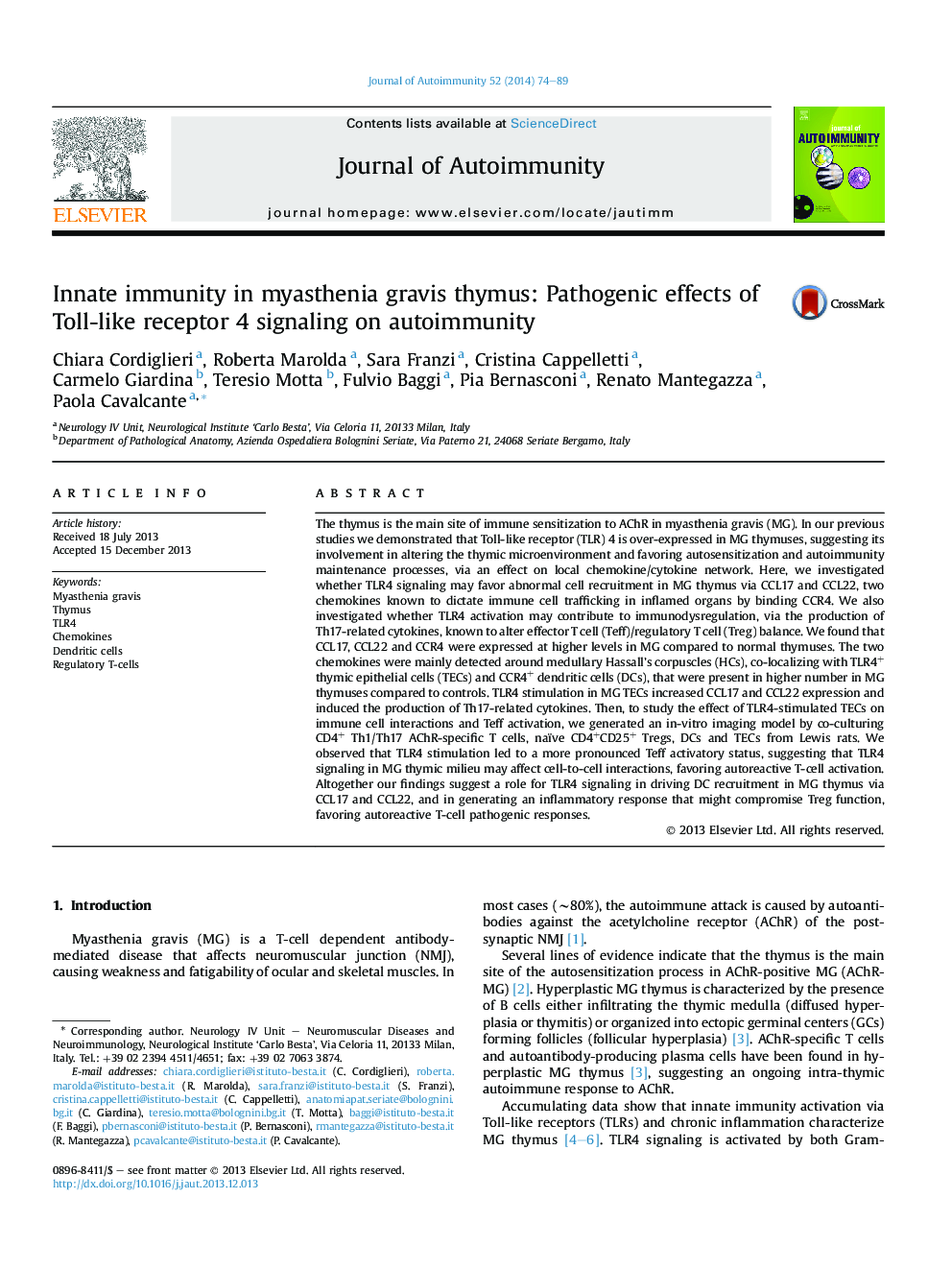| Article ID | Journal | Published Year | Pages | File Type |
|---|---|---|---|---|
| 3367765 | Journal of Autoimmunity | 2014 | 16 Pages |
•TLR4 is over-expressed in MG thymus, suggesting an ongoing innate immune response.•CCL17, CCL22 and CCR4 expression is increased in MG thymus.•TLR4 stimulation increases CCL17 and CCL22 expression in thymic epithelial cells.•TLR4 stimulation increases Th17-cytokine production by TECs.•TLR4 signaling increases effector T-cell activation in co-culture set-ups.
The thymus is the main site of immune sensitization to AChR in myasthenia gravis (MG). In our previous studies we demonstrated that Toll-like receptor (TLR) 4 is over-expressed in MG thymuses, suggesting its involvement in altering the thymic microenvironment and favoring autosensitization and autoimmunity maintenance processes, via an effect on local chemokine/cytokine network. Here, we investigated whether TLR4 signaling may favor abnormal cell recruitment in MG thymus via CCL17 and CCL22, two chemokines known to dictate immune cell trafficking in inflamed organs by binding CCR4. We also investigated whether TLR4 activation may contribute to immunodysregulation, via the production of Th17-related cytokines, known to alter effector T cell (Teff)/regulatory T cell (Treg) balance. We found that CCL17, CCL22 and CCR4 were expressed at higher levels in MG compared to normal thymuses. The two chemokines were mainly detected around medullary Hassall's corpuscles (HCs), co-localizing with TLR4+ thymic epithelial cells (TECs) and CCR4+ dendritic cells (DCs), that were present in higher number in MG thymuses compared to controls. TLR4 stimulation in MG TECs increased CCL17 and CCL22 expression and induced the production of Th17-related cytokines. Then, to study the effect of TLR4-stimulated TECs on immune cell interactions and Teff activation, we generated an in-vitro imaging model by co-culturing CD4+ Th1/Th17 AChR-specific T cells, naïve CD4+CD25+ Tregs, DCs and TECs from Lewis rats. We observed that TLR4 stimulation led to a more pronounced Teff activatory status, suggesting that TLR4 signaling in MG thymic milieu may affect cell-to-cell interactions, favoring autoreactive T-cell activation. Altogether our findings suggest a role for TLR4 signaling in driving DC recruitment in MG thymus via CCL17 and CCL22, and in generating an inflammatory response that might compromise Treg function, favoring autoreactive T-cell pathogenic responses.
